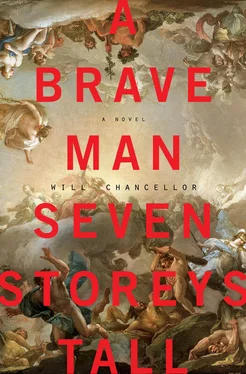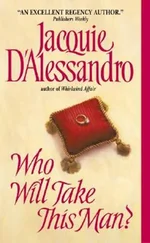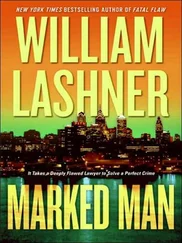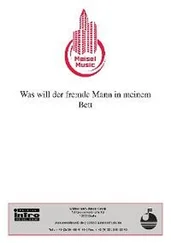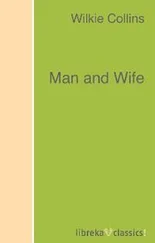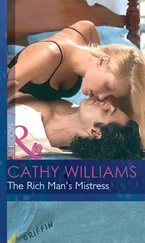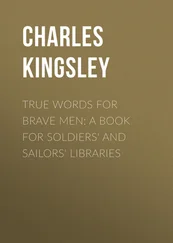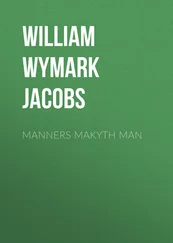Uroš crashed into the pool and surfaced an inch from Wolf’s face. Not nice. Wolf drove the heel of his hand into Uroš’s chest then pulled out a patch of hair. Uroš smiled and threw his hands up to show the ref that, yes, the water was turbulent, but he wasn’t the one fouling. Of course, as he raised his hands he caught Wolf with an elbow to the chin. Wolf pretended to make a break for the goal at the whistle. With Wolf’s hard crossover stroke came a right elbow to Uroš’s teeth. The double whistles meant Wolf would have to wait out twenty seconds, or the possession, from the exclusion area. Rather than flopping around after the ejection and skulling the water, Wolf sprinted to the other side of the lane line and treaded high with his palms in a Gable grip.
I could see Wolf’s eyes getting whiter and whiter the deeper he breathed the carmine air above him.
Twenty seconds passed. Wolf sprinted back into the field of play just in time for Uroš to rip a shot three feet over the top bar in front of Wolf’s outstretched arms. Tough to know if Uroš shot only so he could swing his arm or if he really was trying to score. But this much is certain: on his follow-through, Uroš tore a bandolier of flesh from Wolf’s chest, leaving claw marks from shoulder to hip. Wolf smiled.
Coach Rudić called a time-out and I dove in to pull Wolf back to our side. They both looked at me. Their eyes had grown completely white. And their faces were a perfect calm. I had seen the carmine before, in games, but I had never breathed that deeply. That was the end of aggression. Wolf held my gaze as the color bled back into his irises. He put a finger to his lips, dropped to the pool floor, and swam to our side underwater with three giant pulls.
We’ve never talked about it. It’s one of those things. Paranormal.
That was my experience with the paranormal. My name is Owen Burr. oburr@stanford.edu. Psych 1. Ted Lin’s section.”
Owen wasn’t positive that anyone ever listened to that tape. No one called for a follow-up MRI. Maybe the cassette was buried in a steel filing cabinet in the basement of Jordan Hall. Maybe they were interested in stories of ghosts, not Gods.
And the pumice from the shore. No God today to see him off. There was no iron air, no bending, no monochrome. Just memories in the aether. So Owen returned home. Once back inside, he added a few slugs of olive oil to his jar and stirred the sand with a knife.
Upstairs, Owen emptied his game bag quickly, throwing chewed-up suits in one pile and mildewed shirts in another. Goggles yellow. Goggles blue. He gripped the signed game ball his coach had brought to the hospital; he spun it in his palm and read his teammates’ well wishes, then placed it on a shelf. Scores of molded trophy-men, split at the center with a golden plastic scar, kept the ball from rolling away. Behind the trophies, a graphite sketch on a sheet of hundred-pound paper. Owen pulled it over the trophy men. This was the pride of his AP Art portfolio. It looked exactly like a polar bear. Still, Mr. Estrada had made a point of not telling Owen’s half of the class that they had a duty to follow their passion, wherever it might lead them. Instead, he gave them all A’s and said they were excellent people.
Owen packed bars of soap into the corner of his bag, housed the mason jar between black and white T-shirts, and slipped his passport into the breast pocket of his suit. Corduroy, the caned cloth, wide-wale, durus , but tailored because his dimensions couldn’t be found on a rack. Owen wore a light blue shirt that could go well over a week without showing it. After adding a black roll-neck sweater, he still had room for books.
The holes Owen left in his father’s bookshelf were more alarming than missing teeth. He excised books with a matter-of-fact cruelty. His father would instantly name the lacunae: Mayakovsky, Auden, Wordsworth, Hölderlin, Hollander, Yeats, Milton, H.D., Cavafy, and Sappho for an even ten.
Owen shouldered his sixty-pound bag and walked to the door. Poetry’s density of thought made it good travel reading. These ten volumes should last him a year. But as his hair tickled the doorframe, he changed his mind. Owen took out the books he had gathered, set them on the floor, grabbed a pair of green volumes from the center of the bookshelf, and then waited — as if he had unstoppered the universe and the house itself would suck into that two-book gap.
But he heard nothing. He stood outside, his father’s Loebs in hand, thinking that some Rube Goldberg had been set in motion once the two volumes of the Odyssey left the shelf. Perhaps the axe was swinging, he just couldn’t see it. Half the world he couldn’t see. For our mind’s eye sees sharply when our bodily eye withers away: Tum sane mentis oculus…
The town car cut short his reverie. He directed the driver to the Amtrak station, looking all the while for his father’s Volvo driving the other direction.
Dripping, steaming, hissing, the Southwest Chief waited for Owen and other passengers ringed around him to stomp up the rubber steps and begin the two-thousand-mile climb to Chicago. Right now Owen needed distance from the sinking California sun. And though the Chief’s hisses and drips appeared to hold his attention, and though his gaze never wandered from the coach door where the porter leaned, pedestal in hand, and though it looked as if Owen was studying the train, in truth his attention was directed behind him. Owen sifted through each murmur of the crowd at his back: a father explaining to his son that height wasn’t enough, you needed depth perception to play basketball; an old woman to his left saying, “That’s a real shame”; a few approaches, but the tread was a shuffle, a stutter. Owen felt the glances, the lazy stares, but there were none of his father’s steps: no sloshing middle-aged exertion; no stumbling thunder; no father intent on stopping a son.
The porter climbed down at last and set his step stool at Owen’s feet. And so Owen was the first up those rubber steps, heeling deeper all the gravel bits embedded in the furrows, until he settled in the farthest aisle in a seat that amazingly had more than enough leg room. He could even recline before his knees hit the seat in front.
With his duffel at his side, Owen sat and waited for his father to come running down the asphalt. The potpourri powder sprinkled onto carpet seats and vacuumed into the trapped air had already risen through Owen’s nose and blossomed, swelling his temple until the veins were finger-wide. Dry color in the car, chalk flowers and migraine rising. Leaning his head on the cool window helped. He could use a rainstorm, but outside was bright and glareful. Other passengers slanted closer to him, but never fell in his row. Owen took a painkiller and looked through the scarred acrylic window at California slipping away.
The train skirted the Los Angeles River, glided past culverts and concrete banks, and counted Owen to sleep with a thousand rolling clacks of distance. He woke to unbalanced washing machine rumble and fell back asleep in the comfort of being inside a train whistling in the night. He woke to the psoph of air between car and rail. He swallowed another painkiller and passed out until they were on the other side of Victorville in the Mojave Desert.
Of course you just say I’m going to be an artist .
This forty-hour train ride from Los Angeles to Chicago was supposed to be a somber meditation on the life-altering decision before him: fly to Berlin with severely limited funds and only a vague plan to establish himself as an artist, or… or what? There was no Plan B, which had to be the first step in making it as an artist. The second step, if every photograph of a painter he had ever seen was accurate, was smoking. That was going to take resolution.
Читать дальше
